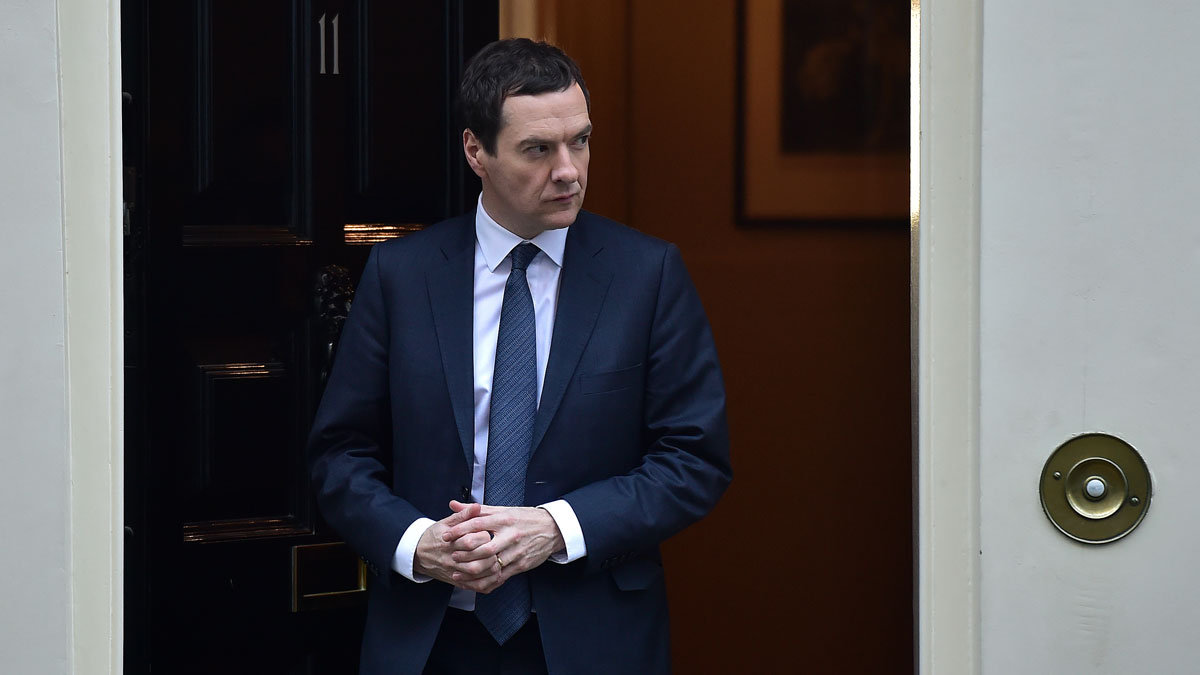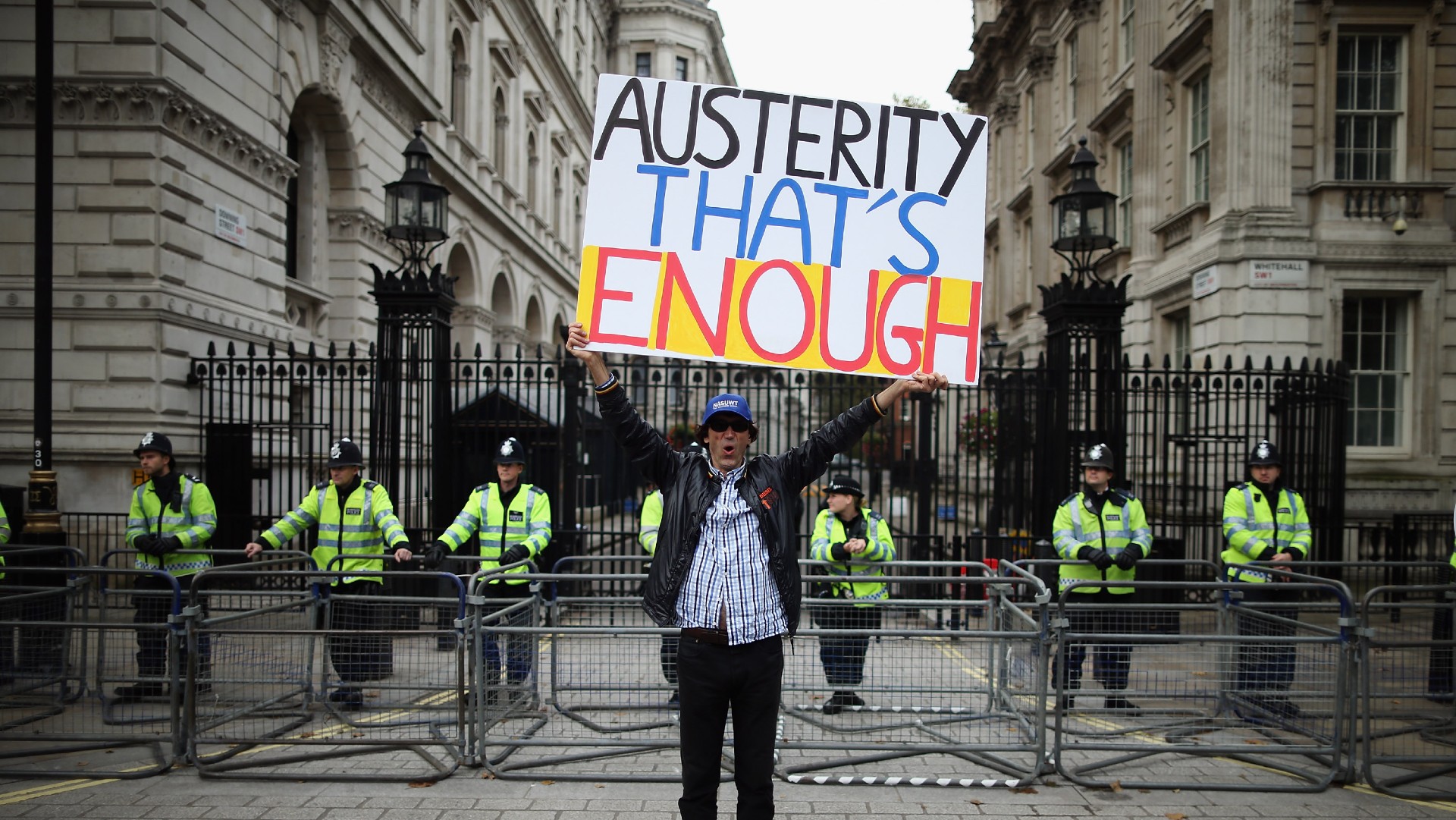Budget 2016: Osborne in line for another £20bn+ windfall
Lower debt servicing costs could offset weaker tax revenues as a result of market turmoil

A free daily email with the biggest news stories of the day – and the best features from TheWeek.com
You are now subscribed
Your newsletter sign-up was successful
George Osborne might be about to get lucky for the second major fiscal policy review in a row, with lower-than-expected debt servicing costs set to hand him a £20bn boost to the country's coffers.
At the Autumn Statement in December, at which a comprehensive assessment of spending and agreed cuts within each government department was presented, stronger tax receipts and lower borrowing costs handed the Chancellor a £27bn reduction in the cost of paying down the country's massive £1.5trn debt pile.
He makes his Budget announcement next month - and analysts have been lining up to predict woes for the public finances as a result of the turbulence hitting the global economy.
The Week
Escape your echo chamber. Get the facts behind the news, plus analysis from multiple perspectives.

Sign up for The Week's Free Newsletters
From our morning news briefing to a weekly Good News Newsletter, get the best of The Week delivered directly to your inbox.
From our morning news briefing to a weekly Good News Newsletter, get the best of The Week delivered directly to your inbox.
The Institute for Fiscal Studies, for example, predicted the previously forecast £10bn surplus by 2019/2020 could be more than offset by lower capital gains tax revenues and a smaller-than-hoped gain in income tax receipts, as wage rises continue to disappoint during a period of ultra-low inflation. It said benefits would have to be cut further and that there was a one in four chance of unexpected tax rises.
But once again, Osborne should be able to show the economic dynamic robbing him with one hand gives back with the other. Capital Economics has calculated the rush to safe havens by investors that is causing the current market unrest is also driving down the rates of interest on government bonds, which hit a record low of 1.3 per cent last week, according to the Daily Telegraph.
This will reduce government spending by £2bn this year alone – and by £21bn over the five years to 2020.
Osborne will also gain around £2.5bn from lower expectations for inflation, notes The Times, as this also has a knock-on effect on the cost of borrowing.
A free daily email with the biggest news stories of the day – and the best features from TheWeek.com
This should be enough to mean Osborne can hit his mandate of achieving an overall surplus by the end of this parliament, the paper adds.
It bases this on an assumed hit from reduced capital and income tax receipts totalling £7bn in 2019-20, plus an election pledge for income tax cuts of £8bn, compared to one-year gains of £5bn and the already planned surplus of a little more than £10bn.
Osborne will also be helped by the fact that despite the wider market turmoil, growth is thought unlikely to be revised lower. Fears may be mounting over the global economy, but UK consumers are seeing their disposable income rise, employment is rising and the focus on domestic demand is insulating the UK from the China-influenced headwinds.
-
 The ‘ravenous’ demand for Cornish minerals
The ‘ravenous’ demand for Cornish mineralsUnder the Radar Growing need for critical minerals to power tech has intensified ‘appetite’ for lithium, which could be a ‘huge boon’ for local economy
-
 Why are election experts taking Trump’s midterm threats seriously?
Why are election experts taking Trump’s midterm threats seriously?IN THE SPOTLIGHT As the president muses about polling place deployments and a centralized electoral system aimed at one-party control, lawmakers are taking this administration at its word
-
 ‘Restaurateurs have become millionaires’
‘Restaurateurs have become millionaires’Instant Opinion Opinion, comment and editorials of the day
-
 Do Tory tax cuts herald return of austerity?
Do Tory tax cuts herald return of austerity?Today's Big Question Chancellor U-turns on scrapping top rate tax but urges ministers to make public spending cuts
-
 Labour shortages: the ‘most urgent problem’ facing the UK economy right now
Labour shortages: the ‘most urgent problem’ facing the UK economy right nowSpeed Read Britain is currently in the grip of an ‘employment crisis’
-
 Will the energy war hurt Europe more than Russia?
Will the energy war hurt Europe more than Russia?Speed Read European Commission proposes a total ban on Russian oil
-
 Will Elon Musk manage to take over Twitter?
Will Elon Musk manage to take over Twitter?Speed Read The world’s richest man has launched a hostile takeover bid worth $43bn
-
 Shoppers urged not to buy into dodgy Black Friday deals
Shoppers urged not to buy into dodgy Black Friday dealsSpeed Read Consumer watchdog says better prices can be had on most of the so-called bargain offers
-
 Ryanair: readying for departure from London
Ryanair: readying for departure from LondonSpeed Read Plans to delist Ryanair from the London Stock Exchange could spell ‘another blow’ to the ‘dwindling’ London market
-
 Out of fashion: Asos ‘curse’ has struck again
Out of fashion: Asos ‘curse’ has struck againSpeed Read Share price tumbles following the departure of CEO Nick Beighton
-
 Universal Music’s blockbuster listing: don’t stop me now…
Universal Music’s blockbuster listing: don’t stop me now…Speed Read Investors are betting heavily that the ‘boom in music streaming’, which has transformed Universal’s fortunes, ‘still has a long way to go’